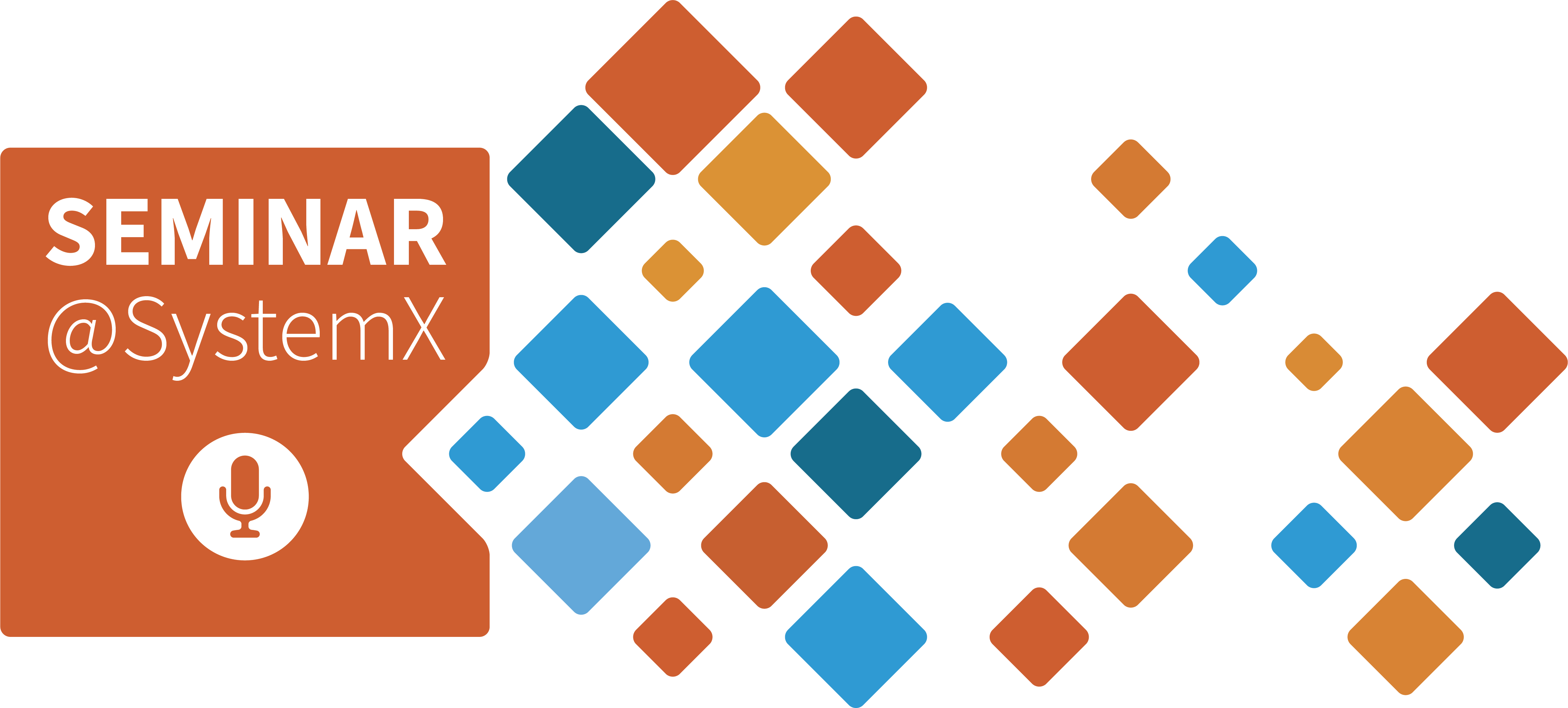SystemX is organizing the CRITICS 2025 Workshop on Cyber Resilience of IT/OT Infrastructures and Complex Systems, at Nano-INNOV (Palaiseau), on April 30, 2025.
Program
09:00am – 09:15am | Welcome coffee
09:15am – 09:25am | Introduction, Patrice Aknin (Scientific Director), IRT SystemX
09:25am – 09:40am | IRT SystemX Cybersecurity Activities Overview, Reda Yaich (Head of Cybersecurity), IRT SystemX
Session 1
09:40am – 10:25am | [Keynote], Rob Kooji (Senior scientist), TNO
10:25am – 10:55am | [Presentation] Cyber Resilience of Complex Systems, Romain Dagnas (Research engineer and PhD student)
10:55am – 11:10am | Coffee break
Session 2
11:15am – 12:15am | [TECHNO DEMO] Training Environment for Cyber Resilience, Nicolas Chaveron (Business Development Manager), Airbus Defense & Space
Abstract: Critical Infrastructures are increasingly targeted by sophisticated cyber threats. Given their essential role in national security and public safety, ensuring their resilience against cyberattacks is paramount. To protect them, it’s important not to only have strong defenses, but also to train teams and test systems in realistic conditions. That’s where CyberRanges come in. By replicating the unique operational technologies (OT) and IT systems of critical infrastructure, it enables stakeholders to identify vulnerabilities, and validate security policies. This approach significantly enhances preparedness and strengthens the overall cybersecurity posture of critical infrastructure environments.
11:15am – 12:15am | [TECHNO DEMO] Monitorability Enhancement for Resilience, Frédéric Breussin (CEO and co-founder), AIoTrust
12:15am – 01:15pm | Lunch break
Session 3
01:15pm – 01:25pm | [Presentation] RSTN Center and Cybersecurity Axis, Joaquin Garcia-Alfaro (Professor), Telecom SudParis, Institut Polytechnique de Paris
01:25pm – 02:00pm | [Presentation] Resilience in 6G networks: An overview of resilience concepts, risks, and enablers, Suzan Bayhan (Associate professor), University of Twente
Abstract: Compared to its predecessor, 6G introduces new capabilities such as the convergence of physical and digital worlds and native AI integration for smarter operations. With high-capacity, low-latency communications, 6G unlocks transformative experiences such as extended reality and industrial automation. Moreover, AI will be at the core of 6G, enhancing both network management and the applications it enables. While these advancements bring significant benefits—such as safer remote operations in hazardous environments and improved service quality—they also introduce new challenges for ensuring a resilient 6G network. This talk will explore the concept of resilience in 6G, examine potential risks, and discuss strategies to enhance network resilience. It will also address the trade-offs between sustainability and resilience, two of the key principles in 6G design.
02:00pm – 02:35pm | [KEYNOTE] Quantum Networks, Rémi Varloot (Researcher), Nokia Bell Labs
Abstract: Quantum technologies are on the rise, in big part due to the advent of the second quantum revolution, also referred to as Quantum 2.0. Amongst these emerging technologies, quantum networks are expected to play a key role, both as an enabler for scalable quantum computing, and in their own right to provide enhanced network security. In this presentation, we give a brief overview of quantum networks: what they are (and what they are not), how they resemble yet differ from classical networks, and what new applications they enable.
02:35pm – 03:10pm | [Presentation] Understanding the Ethereum’s Proof-of-Stake Protocol, Sara Tucci Piergiovanni (Head of Laboratory), CEA List
Abstract: Ethereum’s recent upgrade—known as the Merge—transitioned the blockchain to a Proof-of-Stake model, introducing a novel consensus protocol that combines elements of Nakamoto-style and Byzantine Fault Tolerance designs. This shift resulted in a complex protocol that, at the time of implementation, was only partially documented. In this talk, I will present our analysis of Ethereum’s Proof-of-Stake protocol, focusing on its safety, liveness, and incentive compatibility. Our findings reveal that Ethereum’s Proof-of-Stake protocol ensures safety but achieves only probabilistic liveness. Additionally, we identified potential safety vulnerabilities introduced by the Inactivity Leak mechanism (to penalize and remove inactive validators). Finally, we demonstrate that the protocol ensures incentive compatibility under ideal network conditions.
03:10am – 03:25pm | Coffee break
Session 4
03:25am – 04:00pm | [Testimony] Standard-Based Impact Quantification for Resilience, Matthias Pouyanne (Co-founder), Rule 3
Abstract: Cyber risk decision-making based on standard scores can fall short when resilience is on the line. This testimony leverages real-life examples to show how standard-based impact quantification enables clear, defensible and accurate risk decisions.
04:00pm – 05:10pm | [TECHNO DEMO]: Cyber Attacks Impact on Industrial Systems and Cyber Countermeasures, Cybersecurity & Networks Team, IRT SystemX
05:10pm – 05:14pm | Conclusion
Registration
Biographies
Robert Kooij (Delft University of Technology and TNO (Netherlands Organisation of Applied Scientific Research))
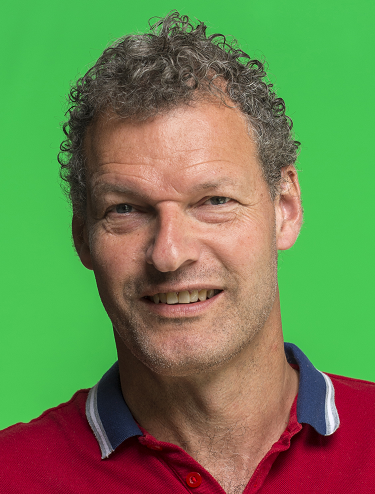 Robert Kooij has a background in mathematics: he received both his MSc and PhD degree cum laude at Delft University of Technology, in 1988 and 1993, respectively. From 1997 until 2003 he was employed at the research lab of KPN, the largest telecom operator in the Netherlands. From 2003 until 2018 he was employed at the ICT Unit of TNO, the Netherlands Organization of Applied Scientific Research. In 2011 he became principal scientist, conducting and managing research on Critical ICT Infrastructures. Since 2005 Robert is part-time affiliated with the Delft University of Technology, at the faculty of Electrical Engineering, Mathematics and Computer Science. Since 2010 he is a part-time full professor with the chair “Robustness of Complex Networks”. From 2018 until 2020 professor Kooij lived in Singapore, where he got a position as principal research scientist at the Singapore University of Technology and Design, working on a project related to cyber resilience for critical infrastructures. Currently he is the head of the department of Quantum and Computer Engineering (QCE) at Delft University of Technology. He is also part-time affiliated with the Cyber Security Technologies group at TNO.
Robert Kooij has a background in mathematics: he received both his MSc and PhD degree cum laude at Delft University of Technology, in 1988 and 1993, respectively. From 1997 until 2003 he was employed at the research lab of KPN, the largest telecom operator in the Netherlands. From 2003 until 2018 he was employed at the ICT Unit of TNO, the Netherlands Organization of Applied Scientific Research. In 2011 he became principal scientist, conducting and managing research on Critical ICT Infrastructures. Since 2005 Robert is part-time affiliated with the Delft University of Technology, at the faculty of Electrical Engineering, Mathematics and Computer Science. Since 2010 he is a part-time full professor with the chair “Robustness of Complex Networks”. From 2018 until 2020 professor Kooij lived in Singapore, where he got a position as principal research scientist at the Singapore University of Technology and Design, working on a project related to cyber resilience for critical infrastructures. Currently he is the head of the department of Quantum and Computer Engineering (QCE) at Delft University of Technology. He is also part-time affiliated with the Cyber Security Technologies group at TNO.
Suzan Bayhan (The University of Twente, Netherlands)
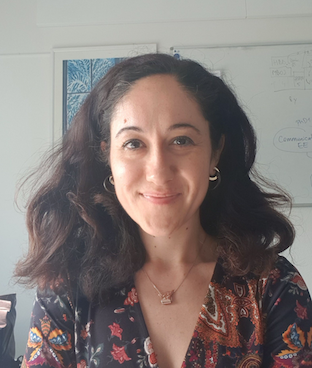 Suzan Bayhan is an Associate Professor at the University of Twente, the Netherlands. Her research interests include mobile networks and sustainable communication/computing continuum. Before joining UT, she was a senior researcher at TU Berlin, and a postdoctoral researcher at the University of Helsinki, where she is currently a docent in computer science.
Suzan Bayhan is an Associate Professor at the University of Twente, the Netherlands. Her research interests include mobile networks and sustainable communication/computing continuum. Before joining UT, she was a senior researcher at TU Berlin, and a postdoctoral researcher at the University of Helsinki, where she is currently a docent in computer science.
Rémi Varloot (Nokia Bell Labs)
 Rémi Varloot is a researcher in the Network Systems and Security Research Lab at Nokia Bell Labs. He joined Nokia in 2018, after having graduated from the École Normale Supérieure in 2015 and completed a PhD at the Microsoft Research-Inria Joint Center in 2018. He is also a member of the LINCS since 2022.
Rémi Varloot is a researcher in the Network Systems and Security Research Lab at Nokia Bell Labs. He joined Nokia in 2018, after having graduated from the École Normale Supérieure in 2015 and completed a PhD at the Microsoft Research-Inria Joint Center in 2018. He is also a member of the LINCS since 2022.
Rémi initially worked on network security automation in private networks, then later designed a programmable monitoring platform for such networks. Since 2022, he has shifted his attention to quantum networks, focusing primarily on designing new protocols for these networks, but also studying their different applications, in particular from a security viewpoint.
Rémi has a strong theoretical background in mathematics and computer science, namely stochastic, graph, and network theory, as well as longstanding hands-on experience with networks in general.
Nicolas Chaveron (Airbus Defense and Space)
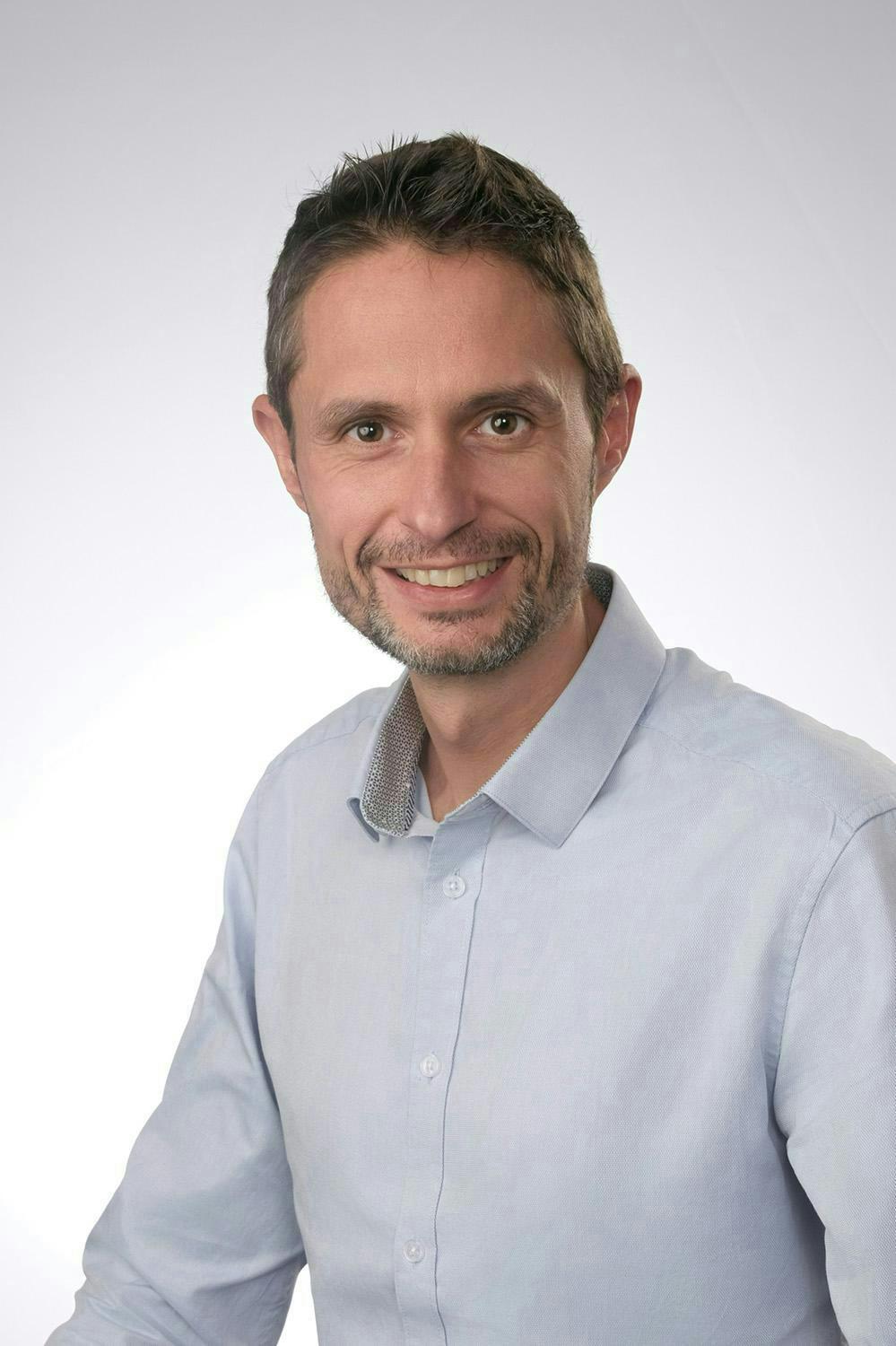 After more than 15 years in IT solutions integration and sales, I chose 5 years ago to specialize in the exciting and ever-changing world of Cybersecurity. With a strong commercial background and a solid technical foundation, I enjoy leveraging my listening skills and understanding of customers’ security challenges to promote Airbus Cyber’s sovereign solutions. Always eager to learn and understand, I now lead the business development of our products to align and evolve them in accordance to the market, expanding our reach and capabilities beyond our borders and long-standing customers.
After more than 15 years in IT solutions integration and sales, I chose 5 years ago to specialize in the exciting and ever-changing world of Cybersecurity. With a strong commercial background and a solid technical foundation, I enjoy leveraging my listening skills and understanding of customers’ security challenges to promote Airbus Cyber’s sovereign solutions. Always eager to learn and understand, I now lead the business development of our products to align and evolve them in accordance to the market, expanding our reach and capabilities beyond our borders and long-standing customers.
Sara Tucci (CEA List)
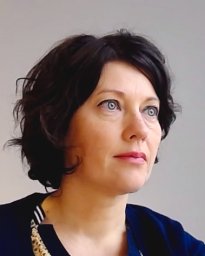 Sara Tucci Piergiovanni is CEA Fellow, senior researcher, and the head of the LICIA laboratory at CEA LIST, Saclay. In her role as the laboratory head, she leads a dedicated team focused on blockchain technologies for industrial applications. The laboratory, comprised of approximately 15 people with backgrounds in formal methods and distributed computing, actively contributes to the analysis and design of decentralized technologies, including consensus protocols, smart contracts, and inter-blockchain protocols.
Sara Tucci Piergiovanni is CEA Fellow, senior researcher, and the head of the LICIA laboratory at CEA LIST, Saclay. In her role as the laboratory head, she leads a dedicated team focused on blockchain technologies for industrial applications. The laboratory, comprised of approximately 15 people with backgrounds in formal methods and distributed computing, actively contributes to the analysis and design of decentralized technologies, including consensus protocols, smart contracts, and inter-blockchain protocols.
As a senior researcher, her contributions span approximately 100 publications in peer-reviewed journals, conferences, magazines, and books. Her primary focus has centered on distributed computing and systems, with a notable emphasis on blockchains in recent years.
Matthias Pouyanne (Rule 3)
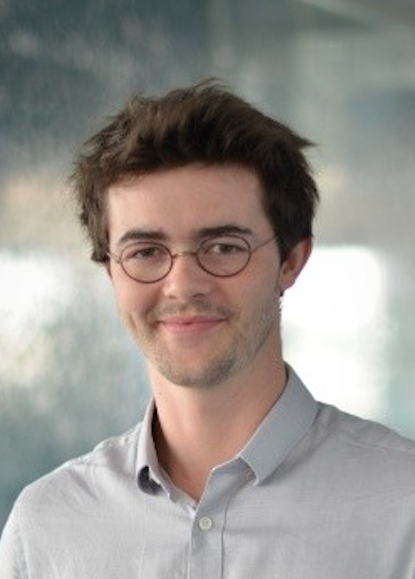 Co-founder of Rule 3, a consultancy specialized in quantitative risk assessment, and consultant with 10 years of experience in risk management and cyber defense ; Matthias champions a pragmatic and efficient approach to cybersecurity. His main focus is on delivering impact through innovative tools and methods development, and clear communication. Committed to making cyber risk quantification accessible to all, Matthias has developed and open-sourced QuantifyMe, a free tool for cyber risk quantification.
Co-founder of Rule 3, a consultancy specialized in quantitative risk assessment, and consultant with 10 years of experience in risk management and cyber defense ; Matthias champions a pragmatic and efficient approach to cybersecurity. His main focus is on delivering impact through innovative tools and methods development, and clear communication. Committed to making cyber risk quantification accessible to all, Matthias has developed and open-sourced QuantifyMe, a free tool for cyber risk quantification.
Organizers
Romain Dagnas (Research-engineer and PhD student, Palaiseau, IRT SystemX)
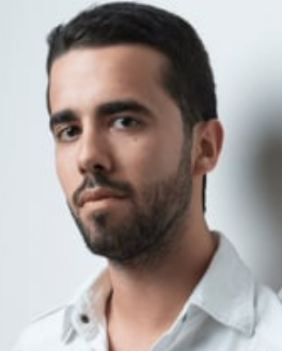 Romain Dagnas received the License degree in mathematics, computer sciences, and physical sciences from the Faculté des Sciences et Techniques de Limoges, France, in 2017, the master diploma degree in computer sciences from 3iL Ingénieurs, France, in 2019, and the master diploma degree in mathematics, cryptology, application coding from CRYPTIS, Faculté des Sciences et Techniques de Limoges, France, in 2019. He is currently a Research-Engineer of the Network and Cybersecurity team at the Technological Research Institute (IRT) SystemX, Palaiseau, France. He works on the Cybelia Programme which answers the resilience needs of industry to face the intensification and sophistication of cyber-attacks, and he is the holder of an exploratory research project launched by SystemX on quantifying the resilience of critical infrastructures. He is currently doing a PhD on the resilience of complex systems.
Romain Dagnas received the License degree in mathematics, computer sciences, and physical sciences from the Faculté des Sciences et Techniques de Limoges, France, in 2017, the master diploma degree in computer sciences from 3iL Ingénieurs, France, in 2019, and the master diploma degree in mathematics, cryptology, application coding from CRYPTIS, Faculté des Sciences et Techniques de Limoges, France, in 2019. He is currently a Research-Engineer of the Network and Cybersecurity team at the Technological Research Institute (IRT) SystemX, Palaiseau, France. He works on the Cybelia Programme which answers the resilience needs of industry to face the intensification and sophistication of cyber-attacks, and he is the holder of an exploratory research project launched by SystemX on quantifying the resilience of critical infrastructures. He is currently doing a PhD on the resilience of complex systems.
Michel Barbeau (Professor and Interim Director, School of Computer Science, Carleton University, Ottawa, Canada)
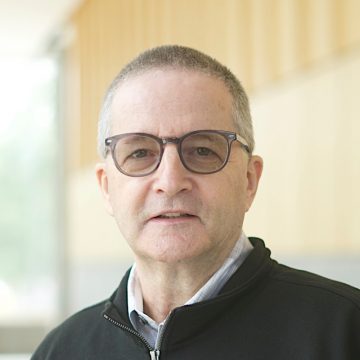 Michel Barbeau is a professor of Computer Science. He got a Bachelor’s (Universite de Sherbrooke, Canada ’85), a master’s, and a Ph.D. in Computer Science (Universite de Montreal, Canada ’87 & ’91. From ’91 to ’99, he was a professor at Universite de Sherbrooke. During the ’98-’99 academic year, he was a visiting researcher at the University of Aizu, Japan. Since 2000, he has worked at Carleton University, School of Computer Science, Canada. His main topic of expertise is computer networks: architecture and protocols. Specific research interests include underwater communications and networks, flying drone networks, quantum networks, and network control systems. Michel Barbeau is the director of the School of Computer Science at Carleton University.
Michel Barbeau is a professor of Computer Science. He got a Bachelor’s (Universite de Sherbrooke, Canada ’85), a master’s, and a Ph.D. in Computer Science (Universite de Montreal, Canada ’87 & ’91. From ’91 to ’99, he was a professor at Universite de Sherbrooke. During the ’98-’99 academic year, he was a visiting researcher at the University of Aizu, Japan. Since 2000, he has worked at Carleton University, School of Computer Science, Canada. His main topic of expertise is computer networks: architecture and protocols. Specific research interests include underwater communications and networks, flying drone networks, quantum networks, and network control systems. Michel Barbeau is the director of the School of Computer Science at Carleton University.
Joaquin Garcia-Alfaro (Professor, Institut Polytechnique de Paris, Télécom SudParis, Palaiseau, France)
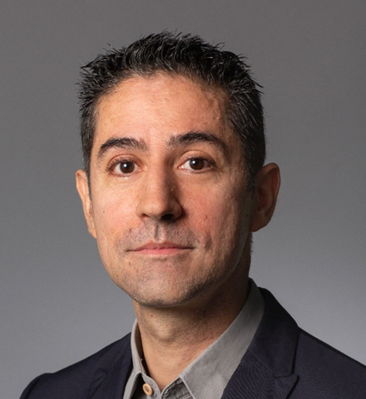 Joaquin Garcia-Alfaro is Professor of Cybersecurity at Institut Polytechnique de Paris (Palaiseau, France), Adjunct Research Professor at Carleton University (Ottawa, Canada) and head of the SCN (Sécurité and Confiance Num\’erique) research team of the SAMOVAR laboratory at Télécom SudParis (Institut Mines-Télécom). His research interests include a wide range of information security problems, with an emphasis on the management of security policies, analysis of vulnerabilities, and enforcement of countermeasures. He holds a double Ph.D. diploma in Computer Science from the Autonomous University of Barcelona and the University of Rennes, and a research Habilitation from Université Sorbonne VI (Pierre et Marie Curie). He is involved in several research projects at National and European levels, related to cybersecurity.
Joaquin Garcia-Alfaro is Professor of Cybersecurity at Institut Polytechnique de Paris (Palaiseau, France), Adjunct Research Professor at Carleton University (Ottawa, Canada) and head of the SCN (Sécurité and Confiance Num\’erique) research team of the SAMOVAR laboratory at Télécom SudParis (Institut Mines-Télécom). His research interests include a wide range of information security problems, with an emphasis on the management of security policies, analysis of vulnerabilities, and enforcement of countermeasures. He holds a double Ph.D. diploma in Computer Science from the Autonomous University of Barcelona and the University of Rennes, and a research Habilitation from Université Sorbonne VI (Pierre et Marie Curie). He is involved in several research projects at National and European levels, related to cybersecurity.
Reda Yaich (Senior researcher, lead cybersecurity and networks team, IRT SystemX)
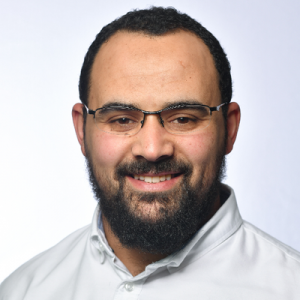 Reda Yaich is a senior researcher and Cyberseurity Team Leader at IRT SystemX. Reda holds as Phd in Computer Science from the ENS Mines of Saint-Etienne with a focus on Trust Management using Artificial Intelligence technologies. He served as lecturer and/or research assistant in several universities (e.g. University of Saint-Etienne, University of Lyon) and engineering schools (ENS Mines Saint-Etienne, Telecom Bretagne, IMT Atlantique, ENSIBS, Telecom SudParis). Reda has several publications in journals and conferences related to Decentralised Access authorisation and Digital Trust Management. He has also participated in numerous national (e.g. ANR FAROS, PIA IDOLE, Web Intelligence, WinPIC, etc.) and European projects (e.g. H2020 SeCoIIA, H2020 SUPERCLOUD, COST Action AT).
Reda Yaich is a senior researcher and Cyberseurity Team Leader at IRT SystemX. Reda holds as Phd in Computer Science from the ENS Mines of Saint-Etienne with a focus on Trust Management using Artificial Intelligence technologies. He served as lecturer and/or research assistant in several universities (e.g. University of Saint-Etienne, University of Lyon) and engineering schools (ENS Mines Saint-Etienne, Telecom Bretagne, IMT Atlantique, ENSIBS, Telecom SudParis). Reda has several publications in journals and conferences related to Decentralised Access authorisation and Digital Trust Management. He has also participated in numerous national (e.g. ANR FAROS, PIA IDOLE, Web Intelligence, WinPIC, etc.) and European projects (e.g. H2020 SeCoIIA, H2020 SUPERCLOUD, COST Action AT).
Practical information
IRT SystemX
Centre d’intégration Nano-INNOV
2, boulevard Thomas Gobert
91120 Palaiseau – France
To visit our site, please bring an ID card.




